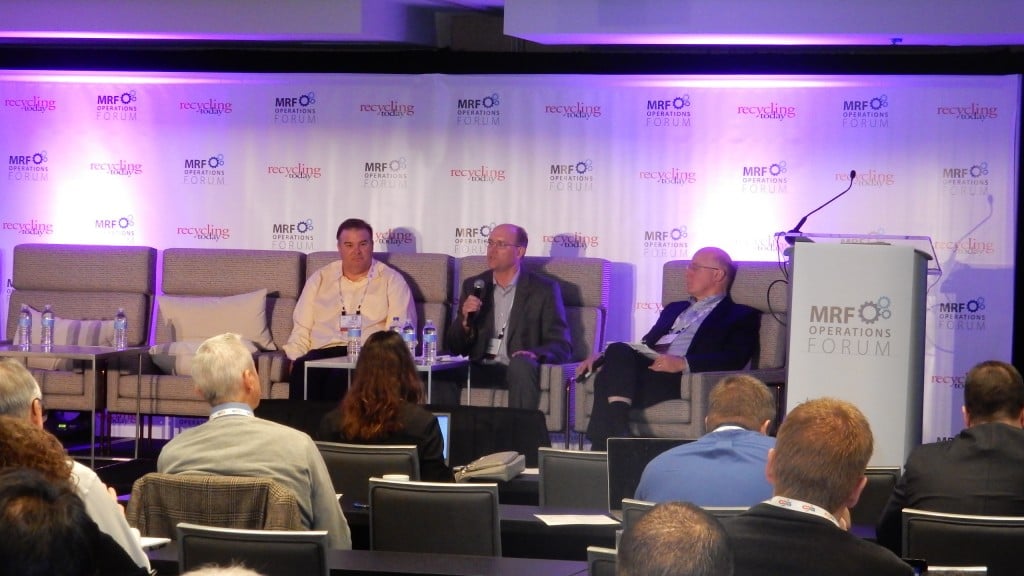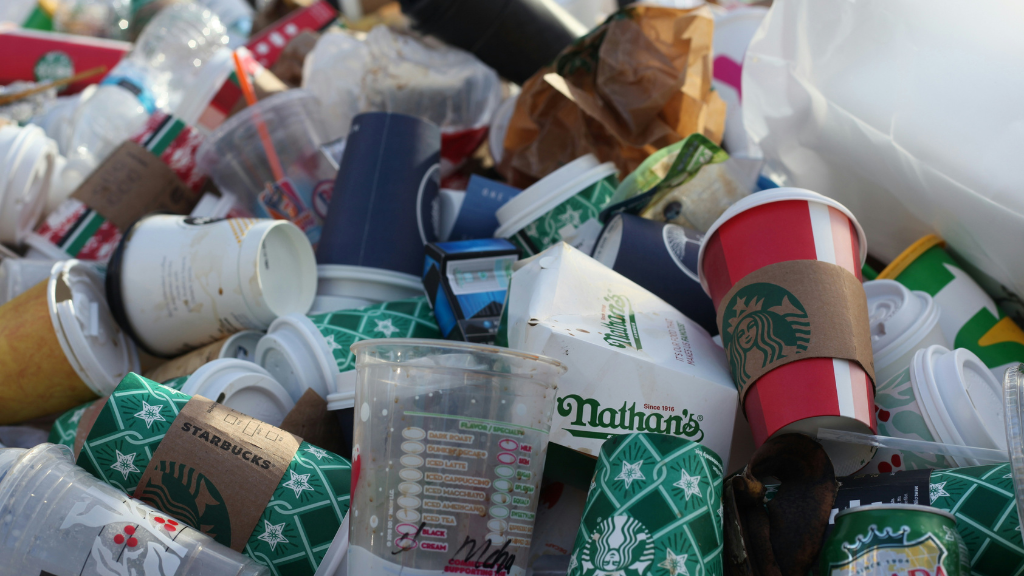MRF Operations Forum 2018
3rd Annual event in Chicago kicks off Paper & Plastics Recycling Conference

Recycling Today Media Group's 2018 Paper & Recycling Conference North America, the 19th edition, opened officially Wednesday, October 17 in Chicago, following the third annual day-long MRF Operations Forum dedicated to best practices at material recovery facilities. Jim Keefe, RT's Publisher opened the 2018 MRF Operations Forum Tuesday morning by welcoming approximately 100 attendees and introducing the first session: "Dynamic MRF Operations". The title is an appropriate one -- reflecting the overall theme for the day: with changing incoming recycling streams combined with changing global end markets, MRF operations need to be dynamic - adapting to changes and changing the way they operate - to maintain profitability.
Tuesday's MRF Operations Forum started with moderator, Nat Egosi, President of RRT Design & Construction, a leading equipment engineering and construction services firm, who introduced the two initial speakers, Jim Marcinko, VP of Recycling Operations, Waste Management, and Mark Henke, Senior Manager Recycling, Republic Services. Both focused on solutions to the challenges they are seeing currently facing MRF operators and owners.
Specifically, some of the challenges MRFs are facing currently include: reduced market options for end products, due in large part to China's restricted import policies which have resulted in diminished markets and high purity standards of 0.5% for some materials - most notably for fibre and plastics - which are very difficult to meet. This, coupled with increases in inbound contamination (up to 20% or more in some regions), less inbound newsprint, and more complex and varied packaging has caused what many in the industry are calling a "MRF crisis". In addition, the speakers pointed out, there are issues with training and retaining the quality, skilled labour force that is needed to adapt to the changes taking place in the recycling industry.
"The goal is to make the best quality material that will move," was one of the first statements put forward by Republic's Mark Henke. "The best quality wins," he said, and went on to provide some key steps that MRFs can implement to help achieve the high level output quality required. His advice included: slowing systems down so there is more contact time for material; add quality control through technology and well trained labour; set picks per minute goals and train employees on a recovery hierarchy based on prioritizing different materials for recovery. Henke also pointed out the importance of implementing solid, standard preventative maintenance, emphasizing the importance of cleaning screens and replacing stars and discs regularly in particular. "You cannot clean screens enough," he stated.
Henke also talked about the issues they are seeing with inbound contamination. He said average residue contamination rates have grown to as high as 20% and even up to 26% in some regions. Some of the solutions for MRF operators, in dealing with this issue, include incorporating better receipt management and documentation of incoming material, as well as making labour pay rates more competitive to attract and retain well trained, quality employees. And generators, including the public, need to be better informed so that recycling behaviours can be effectively changed. He also cited composition testing as being an essential practice (ie. So that MRFs know what the nature of their contamination is exactly.) "Taking 25% contamination to 10% or 15% will produce a significant rise in profitability," he noted.
The other speaker at the initial session, Jim Marcinko of Waste Management, echoed Henke's comments. "Every part of what we do is changing," he said. "MRFs are now very complex, markets are dynamic. We have to be nimble." Marcinko emphasized the need for a focus on the workforce, by cross-training employees so they know how to handle different materials on different parts of the line, communicating market demands with employees and empowering line leaders and workers through incentives and accolades. According to Marcinko, three keys for MRF operations in today's climate should be: understanding daily performance, utilizing technology and empowering labour. He added that overall goals for MRFs should include: flexibility of operations, improving material quality, reducing operating costs, and utilizing increased automation combined with a focus on maintaining and properly training the labour force.
The morning continued with sessions focused specifically on improving fibre and container lines - through a combination of better informed generators, updated technology and a better trained labour force, with commentary and insight direct from leading equipment manufacturers including BHS, Van Dyk Recycling Solutions, Machinex, CP Group, Stadler and Sparta Manufacturing. The morning concluded with insight from a panel of representatives from leading industry engineering-consulting firms GBB, RRS and HDR. Afternoon sessions included focus on fire safety at MRFs, maximizing UBC Recovery, as well as four retrofit case studies presented by Dem-Con Cos, Niagara Recycling, Casella Recycling and Waste Management.
The 2018 Paper & Recycling conference continues through October 19th. RPN


